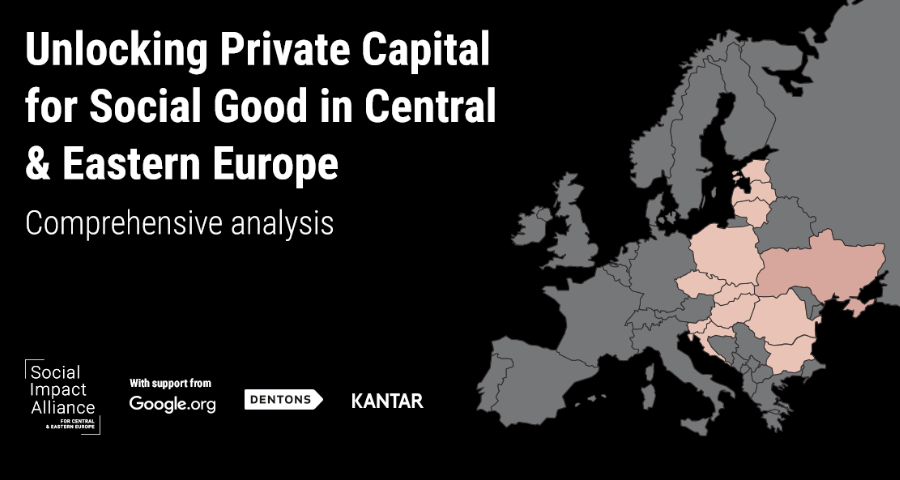
Spanish support for charities continues to grow
October 4, 2023
EFA announces new Board members & plans to recruit for senior role
October 4, 2023Citizens of Central and Eastern Europe (CEE) would be potentially willing to donate nearly twice as much as they currently give, according to a regional think tank.
But civil society organisations, as well as public bodies, Governments and other groups, must evolve and collaborate in order to maximise the sector’s potential social impact, says the Social Impact Alliance for Central & Eastern Europe.
Its report, ‘Unlocking Private Capital for Social Good in Central & Eastern Europe’, provides an overview of the state of civil society, economic conditions and barriers to increasing donations, in 11 CEE states. This includes annual donations – which at the moment total €2.74bn across the region, but have the potential to grow to €5.47bn, according to researchers. Bulgaria, Croatia, Latvia and Slovenia are seen as the countries with the highest potential percentage growth, the report says.
While Ukraine is not one of the 11 countries in the report, it does include a chapter on the country, and lessons that can be learnt from reactions to the Russian invasion.
The report says that the three greatest barriers to increased donations from the public are the rising cost of living; a lack of communication from nonprofit organisations about their needs; and a lack of easily accessible sources of information about giving.
The report, the culmination of three years of research, thousands of interviews, and 230 meetings across the region, should be considered “a roadmap to a more sustainable future of the region and its citizens”, according to the think tank.
It finishes with key recommendations for nonprofit organisations, the public sector and Governments, academia, and business. The recommendations for nonprofits are:
- Develop internal capacity
- Diversify funding sources
- Be transparent, clearly define and report activities
- Promote tax incentives among donors
- Encourage various forms of support
For public sector and Government, recommendations include the importance of creating a national strategy for the sector, simplifying tax and legal systems, and offering funding to improve capacity of impactful organisations.
The report also looks at the role of business in delivering social impact, and suggests that because the economies of these formerly Soviet states are still relatively young, the pursuit of profit remains a central priority for businesses and investors. This hinders the adoption of a more socially responsible approach, it argues.
Anna Korzeniewska, the founder and CEO of Social Impact Alliance for Central & Eastern Europe, says:
“Central & Eastern Europe is facing a pivotal moment, brimming with opportunities and challenges. After approximately 30 years of a free market economy, both individuals and companies now possess the means and willingness to contribute. With the right incentives, individual giving could nearly double. However, there are also challenges that need to be addressed.
“I strongly believe that cooperation, education, and solid partnerships are key to addressing the region’s social and environmental challenges. Reliable data bolsters the region’s strategic sphere, serving as a reference point for further action. While much work lies ahead, I am optimistic that our collective efforts will accelerate transformative changes in the CEE region.”




